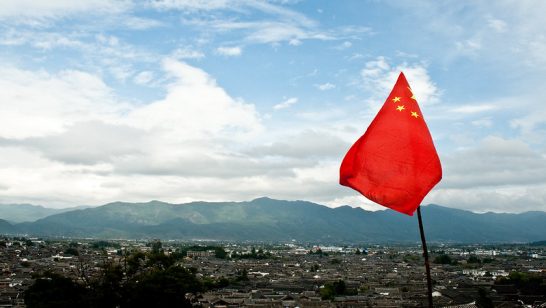
This piece is the first in a new ELN series on the P5 Process exploring national viewpoints from the five nuclear-weapon states ahead of the NPT Review Conference.
France regularly states that it considers the Non-proliferation Treaty (NPT) to be a “cornerstone of our collective security system and an irreplaceable element in maintaining international peace and security.” The preservation and sustainability of the NPT is an important objective of France’s disarmament and non-proliferation policy. In this context, France sees the P5 process (formal discussions between the five official nuclear-weapon states (NWS)) as a useful mechanism to the regime. In particular, it is necessary to demonstrate that the division between NWS and non-nuclear-weapon states (NNWS) is still relevant. China, France, Russia, the United Kingdom and the United States share special obligations and responsibilities as NWS. For this reason, Paris believes that coordinating positions on some issues linked to the NPT in a P5 format is necessary for the good health of the Treaty.
Since the beginning of the process, the P5 tried to split responsibilities into workstreams. During the initial phase (2003-2013), three topics were examined in detail: Verification of nuclear disarmament, transparency, and the publication of a glossary of nuclear-related terms. From 2013, France led on the issues of transparency and agreeing a standard form to be used by all P5 in their reporting efforts to Review Conference meetings. This coincided with the public stance adopted by then-President Sarkozy in favour of increased transparency, with notable disclosure and information on the size of the French arsenal in March 2008.
This effort led to the publication of reports using a standard reporting form during the Review Conference of 2015. It required difficult compromises. On the one hand, some states, in particular China, are traditionally very cautious about communicating information which could be seen as creating potential vulnerabilities for their security, such as disclosing the number of nuclear warheads. On the other hand, some NNWS had very high expectations of the process which may have resulted in disappointment in the final result. The members of the Non-proliferation and Disarmament Initiative (NPDI) provided their own suggestions of what the common reporting format should include. The final model that was adopted created some disappointments within the NPT community, but it remains the only template that is acceptable to all P5 members. There is currently no push to revise this format.
In anticipation of the Review Conference, originally set for Spring 2020 (since postponed due to COVID-19), the P5 agreed in the spring of 2019 on a work plan focusing on five issues. Once more, the five countries have each picked a topic on which they are leading the efforts. France has been selected to lead the work on moving forward on the Fissile Material Cut-Off Treaty (FMCT). This is consistent with the fact that negotiating an FMCT remains the main priority of the French disarmament policy. Paris insisted on having the issue included in the programme of work of the P5. This was to preserve coordinated support of the envisioned future Treaty and to make sure that it would remain on the agenda in its current format. France is working on preparing a working paper or a declaration on the Treaty for the next Review Conference. While the United Kingdom is officially in charge of the workstream dealing with doctrines, France is also very supportive of these discussions. It participates actively in the debates on the reduction of strategic risks. Viewed from Paris, it is useful to use the P5 format to promote its vision of the issue, which goes beyond the traditional interpretation of “nuclear risk reduction.”
While critics of the P5 process – described by some as a cartel – are felt in Paris, they are seen as irrelevant given the few issues where there is actually agreement among P5 members. For instance, even on the Treaty on the Prohibition of nuclear weapons (TPNW), a topic on which the P5 has displayed rare unity (in opposing it publicly), the views actually differ greatly on the extent to which the P5 should talk about it.
That being said, despite the increasing tensions between P5 members, and the difficulty to agree on any topics linked to non-proliferation or arms control in recent years, France remains convinced that the P5 process will remain useful and appropriate after the upcoming Review Conference. This conviction may appear stronger in Paris than among other participants of the P5 process, even if all have confirmed that they remained committed and interested in the format so far. France insists on the shared goals that P5 members continue to have given their responsibility of being NPT-recognised nuclear powers. The diplomats and experts participating in the meetings believe that the current environment has at least the merit of forcing the P5 members to meet regularly, at different levels, and to exchange views on important topics. The discussions on doctrines is, in this regard, seen very positively, as the meetings held on this issue have been in-depth and expert. It is hard, however, to understand to what extent these forums complement bilateral strategic dialogues between the United States, Russia, and China. Despite this question, it is accepted in Paris that not only can these talks promote a better comprehension of rivals’ nuclear policies, thanks to frank behind-the-door debates, but they also force the protagonists to address these issues on a regular basis. Moreover, thanks to the efforts to open part of the process to some NNWS, it is an opportunity to answer collectively some concerns of non-nuclear weapon states.
We can, therefore, expect Paris to take the lead next year on chairing the P5 process, and to keep investing in the various formats of the process (technical, high-level, etc.) to make sure it remains dynamic, enables discussions between NWS and promotes a degree of transparency towards the more global non-proliferation community. While there is likely interest in Paris to consider other issues to add to this framework, which are not directly linked to the NPT Review process, it remains difficult to see to what extent the other partners would agree to such an extension of their work plan. After what is expected to be a difficult Review Conference, it will nonetheless be necessary to consider whether or not the P5 process can remain relevant without rethinking the scope of the issues it covers.
The opinions articulated above represent the views of the author(s) and do not necessarily reflect the position of the European Leadership Network or any of its members. The ELN’s aim is to encourage debates that will help develop Europe’s capacity to address the pressing foreign, defence, and security policy challenges of our time.
Flickr: Anthony040



